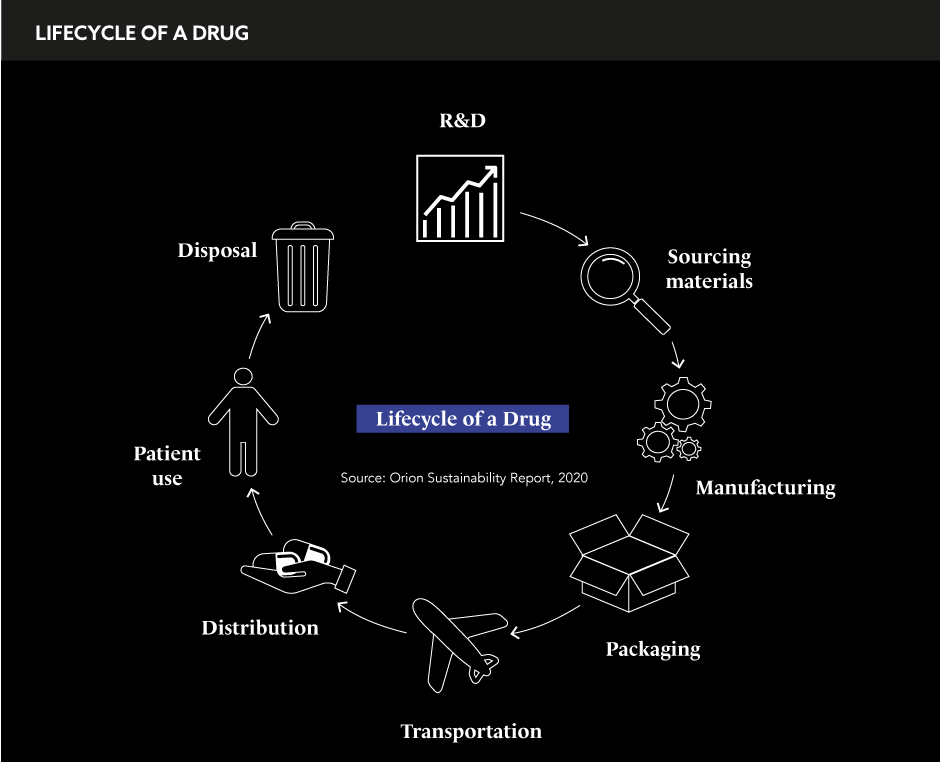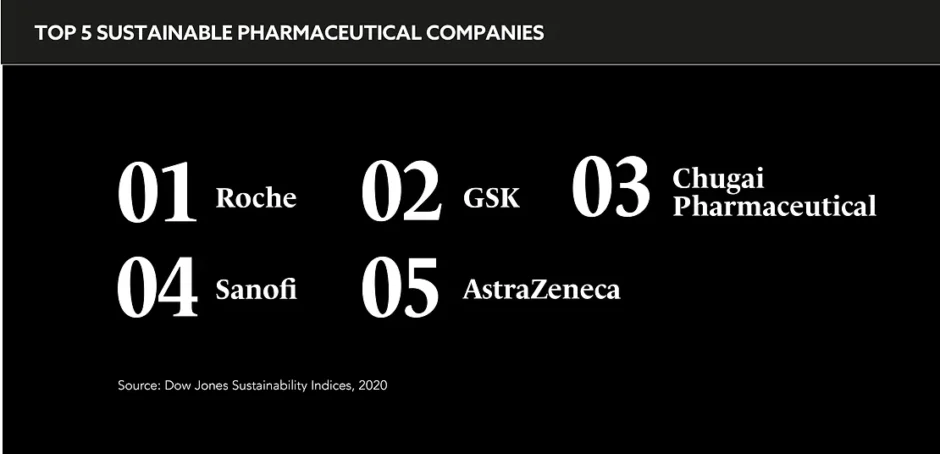Sustainability has become a crucial focus for all industries, and for one that prioritises patient and public health above all else, pharmaceuticals is certainly no exception. From drug development to disposal, how can all processes and functions be considered through a greener lens, and work towards a healthier and safer future?
Words by Michaila Byrne
Consumerism with a conscience has surged in prominence over the past 5 years; interested individuals can cast votes with their money opting for ethical products, avoiding unethical companies, and judging them by everything from treatment of animals to their carbon footprint. With consumers increasingly scanning for the Fairtrade label and dictating the market standard, drugs will soon be no different from coffee and clothing brands, and the pharmaceutical industry must assess their practices, processes, and principles when it comes to drug production and pave the way for a sustainable future.
We now understand the direct correlation between the planet and human health. “The link between environment and health is becoming ever more obvious. It’s all about how we want to live together on this planet,” says Debbie Hobbs, Group Director of Sustainable Business, ISG, speaking at the WIREDHealth virtual event. As we recognise these facts, all industries will need to adjust the way they operate accordingly and accept that things which may have been acceptable in the past will have no place in pharma’s future.
Commit not only sustainable practices, but measuring the long-term value that these activities deliver
Pharma has a uniquely mighty influence, and arguably their portrayal as an environmental villain is misleading. The industry possesses the capacity to make a sizable dent when it comes to the consumption and proper disposal of plastic and waste across water, energy, and emissions. Noora Paronen, Head of Corporate Responsibility, Orion Corporation explains: “The pharma industry is not behind in terms of sustainability. It has been an important area for the industry for a long time and perhaps issues related to it just have not been brought forward so much compared with, for example, the automobile industry.”
A large part of this shift is reflective of what we see in all areas of consumerism. With David Attenborough and Greta Thunberg placing pressure on governments and engaging people of all ages with the climate crisis, healthcare payers and care providers are now also demanding accountability when it comes to sustainable practices. Speaking at WIREDHealth, Pamela Spence, Global Health Sciences and Wellness Industry Leader, EY, points out that for national healthcare organisations to become carbon neutral, the medical and medical device industries need to contribute, or else the equation will not be balanced: “As we have seen with other industries, products and services – no matter how strong technically – will not be enough in the future.” Expectations are high in the “age of the health experience” and pharma have more than just their own operations to think about; they must consider business partners, suppliers, and third-party providers. “Meeting these increased expectations will mean expanding the traditional definition of innovation, which historically has focussed on the safety and effectiveness of drugs as well as the efficiency and efficaciousness of care.”
Pharmaceuticals do not belong in nature. Medicines leave residues of which a large percentage end up in natural environments through waterways. As Paronen stresses: “Each company should do its best to minimise impacts in its own operations, but also work to minimise relevant impacts across the value chain together with stakeholders.” She continues: “Sustainability is increasingly about understanding the impact of the entire value chain, not only of our own operations.” Hobbs supports this, encouraging a “health and well-being standard” that creates an environment suitable for all its occupants: “Especially for patients recovering; they need to have the best environment possible to allow their bodies to recover.” Companies have the power to challenge and change their own processes and apply all available methods to reduce their negative impact on the environment.
To really accelerate change, this commitment will be needed at all levels of companies – from management to the machine operator – if we are to incorporate sustainability into daily operations and to work towards common sustainability targets. In order to be a leading model of the future, Spence advises pharma: “Commit not only to sustainable practices but measuring the long-term value that these activities deliver. Investors will increasingly demand this commitment to measuring the impact created and will be scrutinising companies’ behaviour more closely in the future than ever before.”
Pledges aren’t enough and time is of the essence. Only by examining every decision or action along the drug development journey through the lens of sustainability can the industry create a model fit for the future, a future where we desperately need a pharma function that considers its patients in the most holistic way – not just in the drugs they take, but also in the water they drink, and in the air they breathe.











